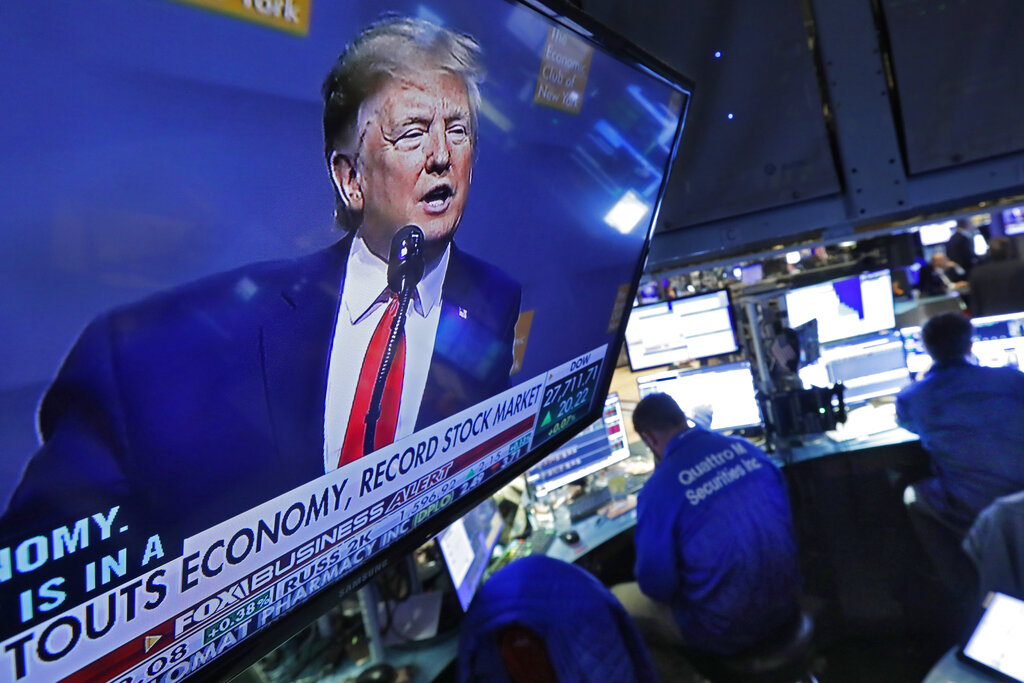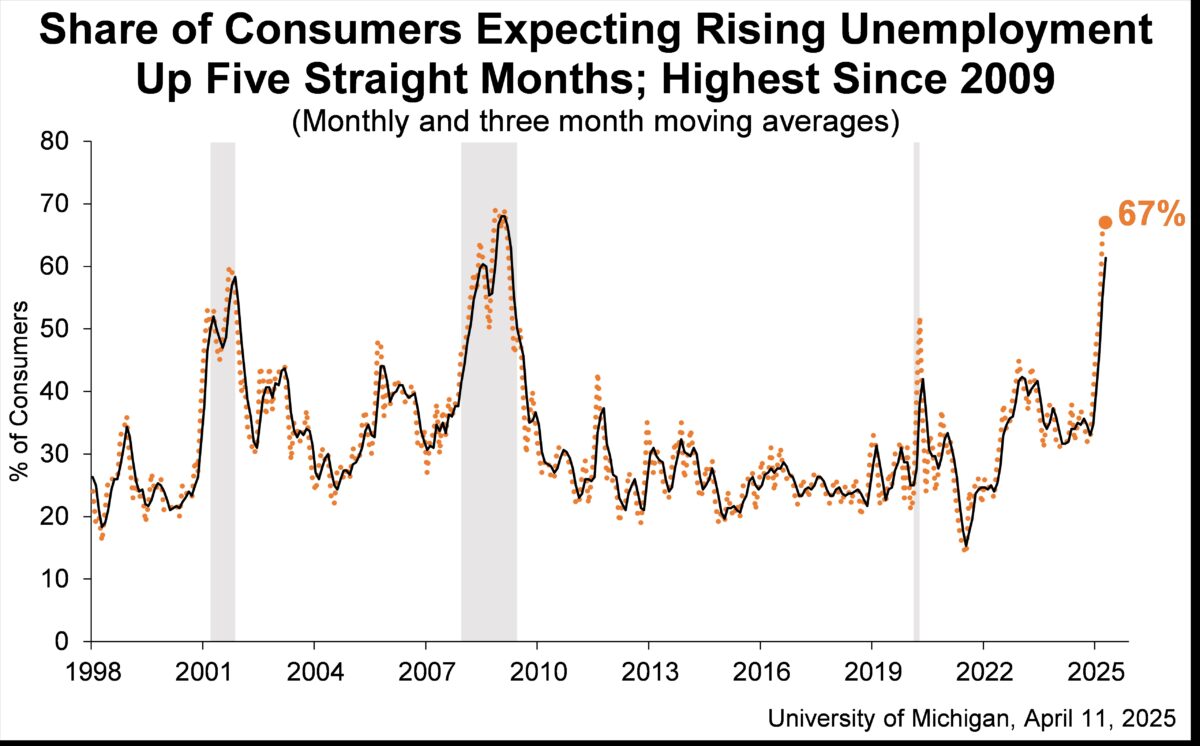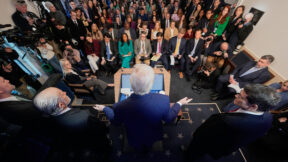JUST IN: US Consumer Sentiment Plummets to Second-Lowest Level in Over 75 Years

(AP Photo/Richard Drew)
The University of Michigan’s latest survey, released Friday, showed that consumer sentiment in the United States plunged 11% this month to a preliminary reading of 50.8. This represents the second lowest level recorded since the survey began in 1952.
Surveys of Consumers Director Joanne Hsu released the following statement explaining the study:
Consumer sentiment fell for the fourth straight month, plunging 11% from March. This decline was, like the last month’s, pervasive and unanimous across age, income, education, geographic region, and political affiliation. Sentiment has now lost more than 30% since December 2024 amid growing worries about trade war developments that have oscillated over the course of the year. Consumers report multiple warning signs that raise the risk of recession: expectations for business conditions, personal finances, incomes, inflation, and labor markets all continued to deteriorate this month. The share of consumers expecting unemployment to rise in the year ahead increased for the fifth consecutive month and is now more than double the November 2024 reading and the highest since 2009. This lack of labor market confidence lies in sharp contrast to the past several years, when robust spending was supported primarily by strong labor markets and incomes. Note that interviews for this release were conducted between March 25 and April 8, closing prior to the April 9 tariff partial reversal.
A big part of the declining consumer sentiment? Nearly 70% of those responding to the survey now expect a surge in unemployment, as evidenced by the following chart published by the Univerisity of Michigan.

Daniel’s XL Toolbox 7.3.4
According to the report, consumer sentiment fell 10.9% from the March forecast and a whopping 24% year-over-year compared to the April outlook in 2024. This is the lowest rate since February 2022, when gas prices were spiking under former President Joe Biden, but it is the highest one-year inflation since 181.
Consumer sentiment is similar to consumer confidence, as both indices are used to gauge consumers’ overall attitude towards the economy, but they focus on slightly different aspects. Consumer confidence primarily reflects how optimistic consumers are about their financial situation and the state of the economy, while consumer sentiment assesses how consumers feel about the economy and their future outlook.
President Donald Trump recently disrupted the global economy with a controversial trade tariff policy, which he paused for 90 days after admitting that the markets and voters are getting a bit “queasy” by the bumpy road they appear to be causing.
New: The Mediaite One-Sheet "Newsletter of Newsletters"
Your daily summary and analysis of what the many, many media newsletters are saying and reporting. Subscribe now!






Comments
↓ Scroll down for comments ↓